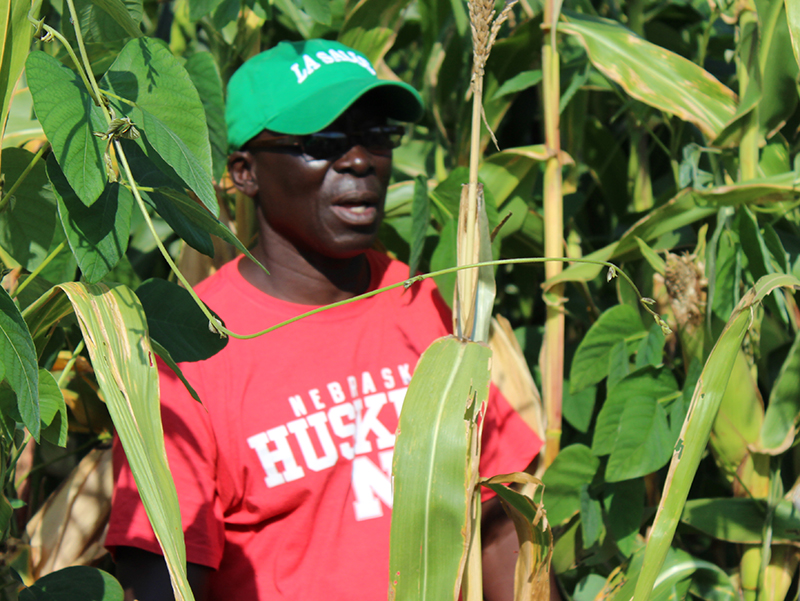
Kofi Boa

Agronomist Dr. Kofi Boa was inspired to devote his life to regenerative conservation agricultural practices for deeply personal reasons. Slash-and-burn approaches were the norm in his region, and when he was a child his mother’s cocoa farm was completely destroyed when a neighbor’s fire burned out of control. Determined to find more sustainable methods of farming, he studied agricultural science at Kwame Nkrumah University of Science and Technology in Kumasi, Ghana and agronomy at the University of Nebraska. Early in his career he worked as an on-farm research scientist at the Crops Research Institute (CRI) of the Council for Scientific and Industrial Research in Ghana. Now Boa works independently through the Center for No-Till Agriculture(opens in new window), the organization he founded with support from the Howard G. Buffett Foundation. The Center also hosts research done by The Center on Conflict and Development at Texas A&M University(opens in new window), for which he serves as Senior Advisor.
The Center for No-Till Agriculture is located in Amanchia in the Atwima Nwabiagya District of the Ashanti region of Ghana. It maintains a demonstration farm and training facilities where farmers learn about soil health and and gain hands-on experience using no-till techniques with mulch, cover crops, intercropping, and minimal use of chemical and synthetic fertilizer. Smallholder farmers can adopt this style of farming fairly inexpensively using their own or local labor. While the first year is labor intensive, when done correctly, Boa and his farmers are achieving yields double and sometimes triple what is typical with the slash-and-burn approach with less work involved.
Read one of the papers that has come out of this work:
Agro-ecosystem, tillage, and cropping effects on extractable soil nitrogen and organic carbon in Ghana (PDF), Journal of Arid Land Studies, August 2014
Kofi Boa's current work is deeply centered on hands-on education. The shareholder farmers he works with have little or no formal education—they need to see the results and learn the methods firsthand. He also emphasizes that the farmers were taught to distrust no-till approaches because no-till and bare earth did not work. He believes that the best results come from not leaving the land bare. Once the farmers have an opportunity to see how using mulch and cover crops along with no-till improves their yield, they come around. He has had great success in converting people to these methods. Communities in Ghana have seen greatly improved incomes and more food availability with more time off for other activities due to less time needed on the farm.
Listen to Kofi Boa speak about his journey and what he has to share in this seminar presentation:
